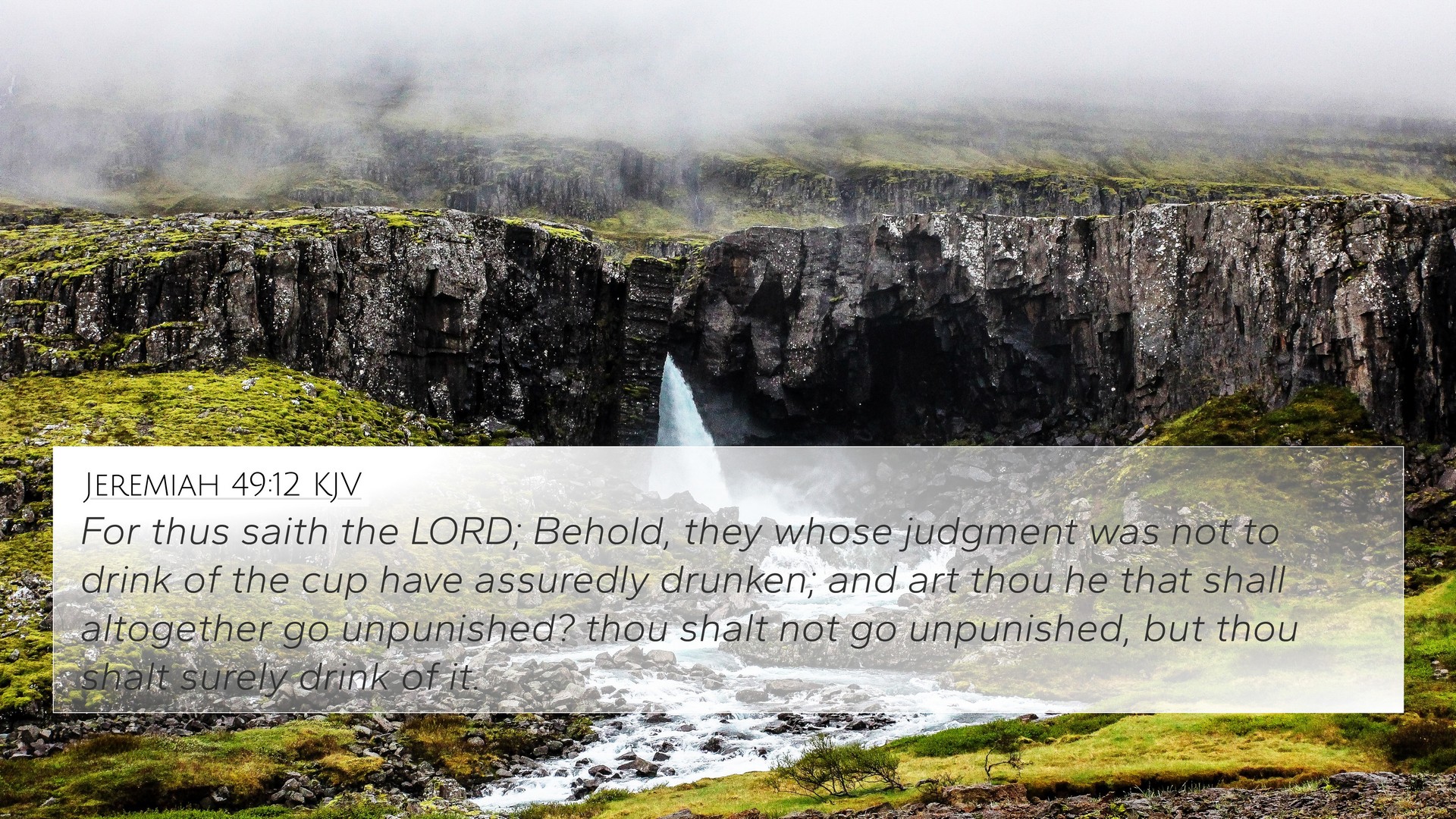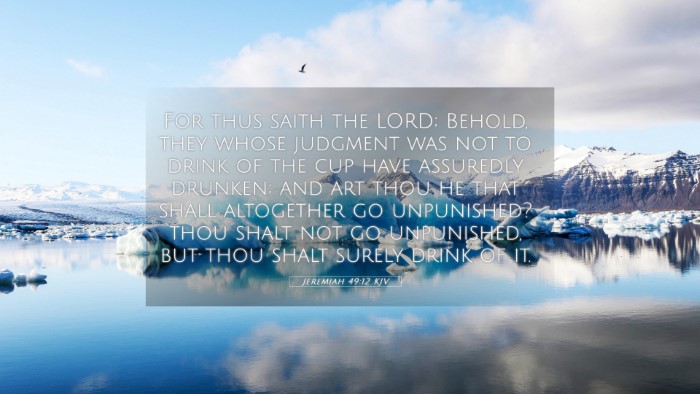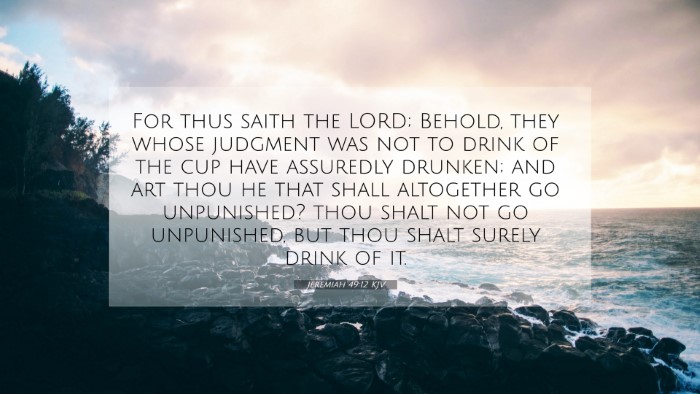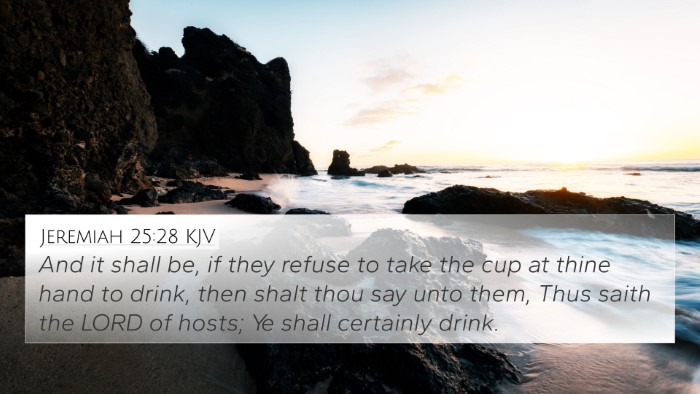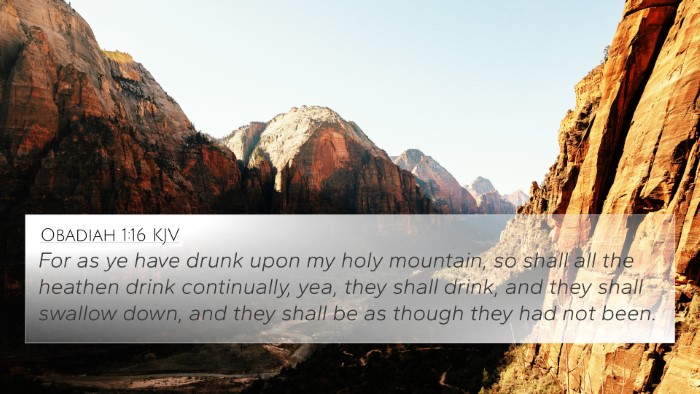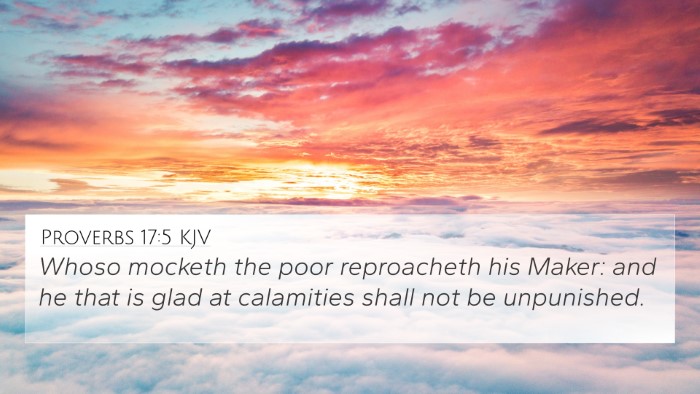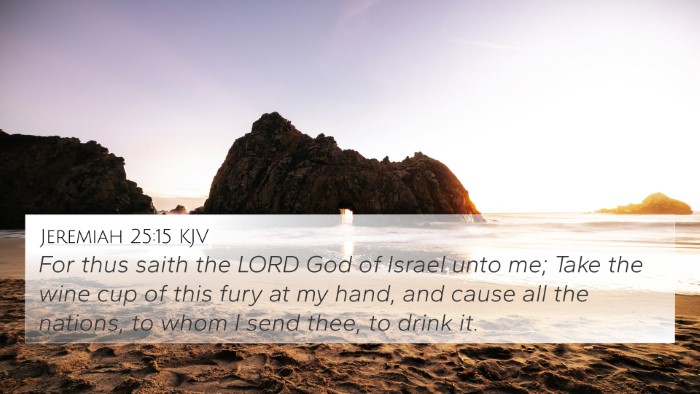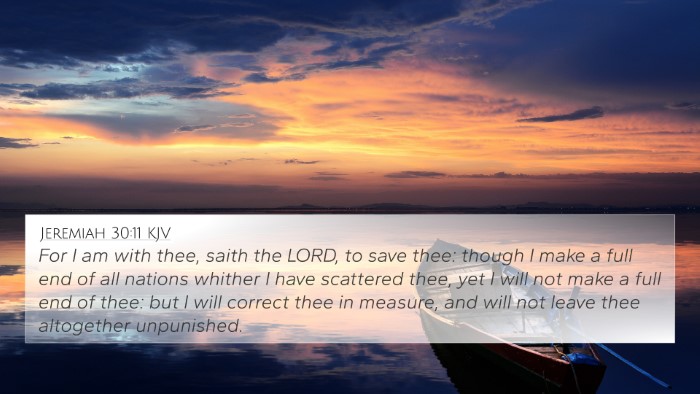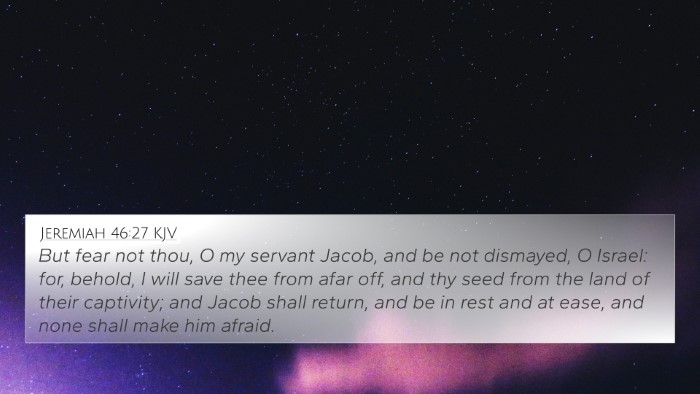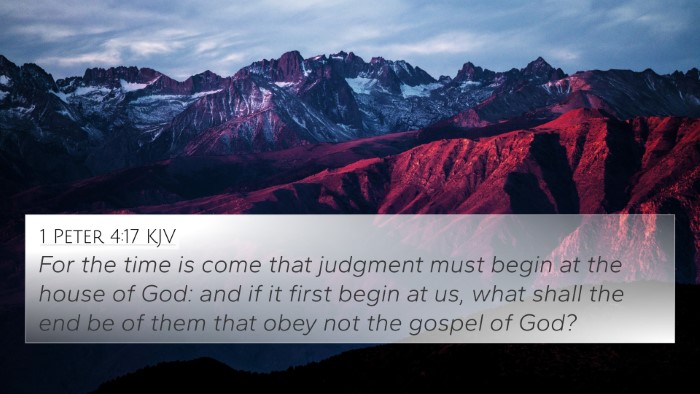Understanding Jeremiah 49:12
Jeremiah 49:12 states: "For thus says the Lord: Behold, those whose judgment was not to drink of the cup have assuredly drunk; and are you the one who will be completely acquitted?" This verse, found in the context of God's judgment against various nations, presents profound insights into divine justice and accountability.
Summarized Commentary Insights
The following insights are derived from public domain commentaries by Matthew Henry, Albert Barnes, and Adam Clarke, focusing on the meaning of Jeremiah 49:12.
Matthew Henry's Commentary
Matthew Henry emphasizes the inevitability of judgment for all nations, as none can evade the consequences of their actions. He highlights that those who thought they could escape divine punishment will find themselves judged. The illustration of the "cup" symbolizes suffering, indicating that even those not originally destined for judgment will face God's wrath if they do not repent.
Albert Barnes' Commentary
Albert Barnes elaborates on the notion of divine justice. He points out that God's judgment is impartial and far-reaching, affecting even those who believe they are exempt. This verse serves as a stern reminder that every soul is accountable before God, reinforcing the theme of universal culpability.
Adam Clarke's Commentary
Adam Clarke notes the metaphor of the cup as a representation of judgment and divine retribution. He suggests that the text underscores the seriousness of God's warnings and the dangers of presuming upon divine mercy. Clarke highlights that the verse calls for introspection regarding our own standings before God.
Key Themes and Connections
This verse presents several key themes worth exploring through scripture cross-references:
- Divine Judgment: Habakkuk 2:16 - Discusses the cup of wrath that nations will drink.
- Accountability: Romans 14:12 - States that each of us shall give account of ourselves to God.
- God’s Sovereignty: Psalms 75:7 - God is the judge who puts down one and exalts another.
- Consequences of Sin: Galatians 6:7 - For whatever a man sows, that will he also reap.
- Assurance of Judgment: Isaiah 51:17 - God warns of the cup of his fury.
- Impending Justice: Ezekiel 18:30 - Calls for a return from sin to avoid consequences.
- God's Mercy and Justice: Micah 6:8 - Combines the call for justice and mercy with humility before God.
- The Universality of Sin: 1 John 1:8 - If we claim to be without sin, we deceive ourselves.
- Hope for Redemption: Joel 2:12-13 - A call to return to God with all the heart, for He is merciful.
- The Certainty of God's Word: Isaiah 55:11 - God's words will accomplish what He pleases.
Thematic Bible Verse Connections
Jeremiah 49:12 is rich for cross-referencing as it encompasses major biblical themes. By understanding its implications, believers can better appreciate God's nature and His dealings with humanity.
When a deeper study is undertaken, certain connections become apparent:
- Linking Biblical Texts: It can be connected with Romans 3:23, illustrating the concept that all have sinned and fall short.
- Comparative Bible Verse Analysis: Jeremiah 49:12 serves as a caution similar to the warnings in Matthew 5:10 about facing persecution for righteousness.
- Bible Verses Related to Accountability: Luke 12:48 emphasizes that to whom much is given, much will be required.
- Exploration of Divine Justice: Investigate Revelation 20:12, discussing the great white throne judgment.
- Inter-Biblical Dialogue: Engage with Proverbs 11:21, noting the certainty of reaping what one sows.
- Identifying Connections between Old and New Testament: Connect with teachings in Hebrews 9:27, about judgment following death.
Conclusion
Jeremiah 49:12, through its stark reminder of the inevitable coming judgment, calls for reflection and repentance. As believers explore the cross-references and thematic connections of this verse, they engage in a deeper understanding of the overarching narrative of Scripture regarding divine justice, accountability, and mercy. Comprehensive Bible cross-reference materials, tools for Bible cross-referencing, and methods for studying these connections can enrich personal and communal Bible study experiences.
"What verses are related to Jeremiah 49:12?" can be answered through the exploration of its themes and the suggested Scriptures, illustrating how interconnected the Bible’s message truly is.
